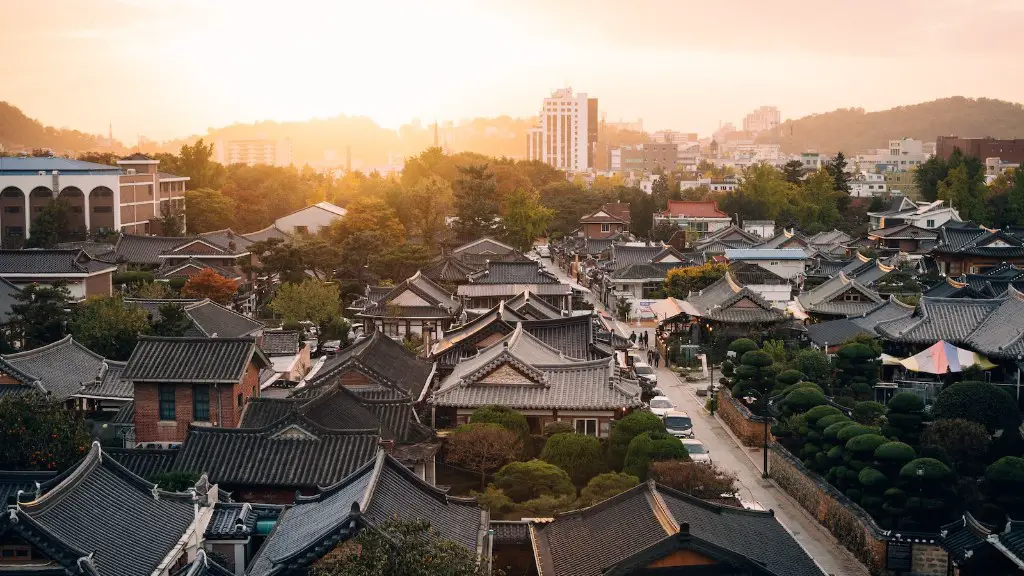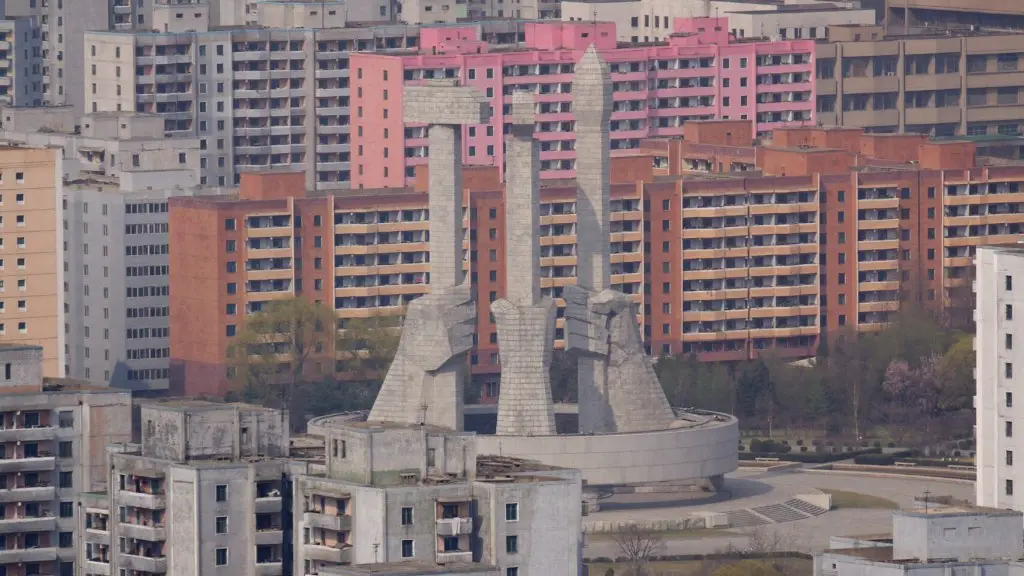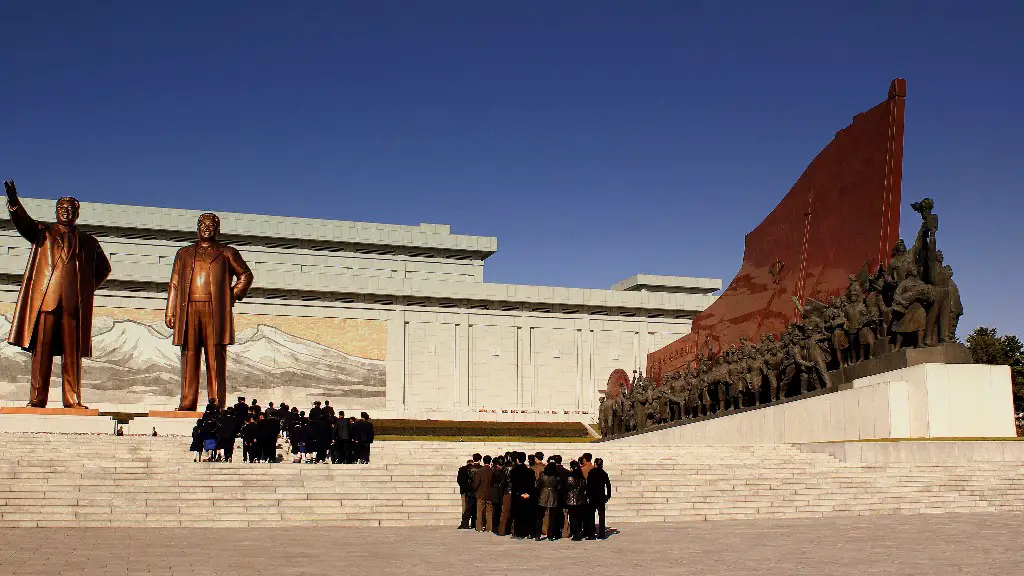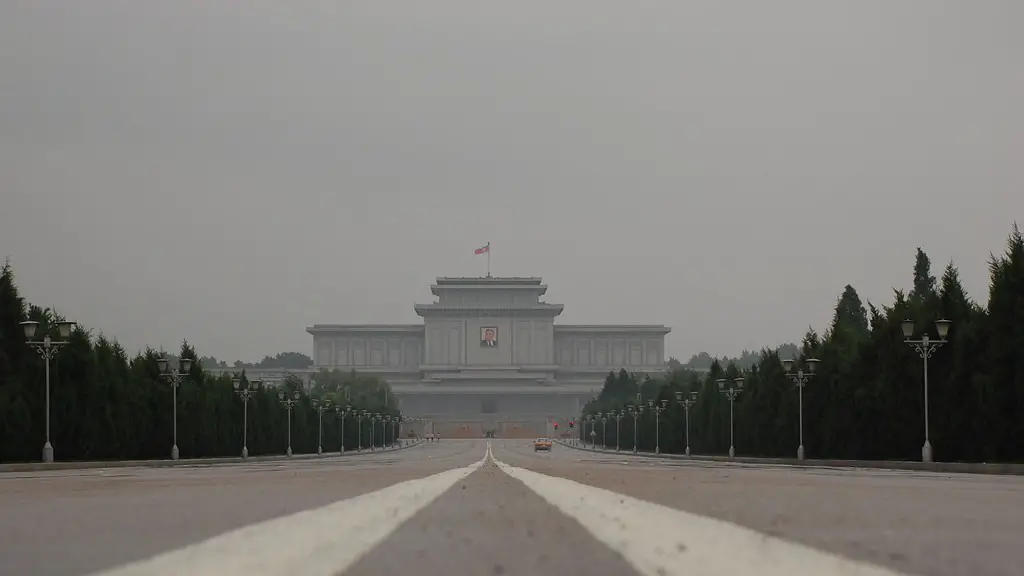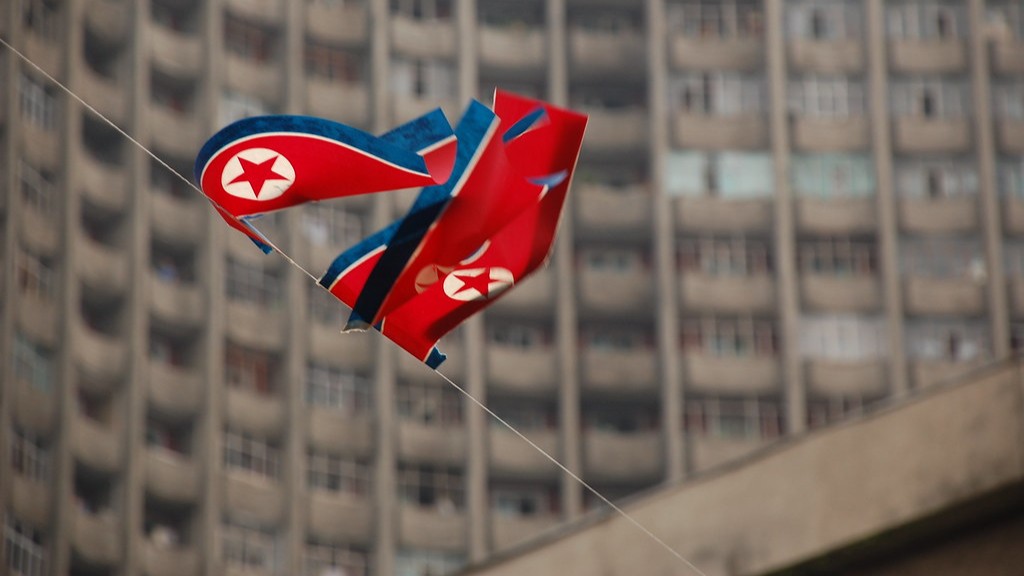North Korea, officially the Democratic People’s Republic of Korea, is a country that lies in the northern half of the Korean peninsula and is bordered by China and Russia to the north and South Korea to the south. For decades it has been one of the most isolated countries in the world and its recent actions have been a talking point for many news outlets. This article will explore the latest news on North Korea and offer some insight into the politics and policies driving the story.
Recent years have seen North Korea become increasingly hostile towards the international community. In 2017, the country launched a number of ballistic missiles, including an intercontinental ballistic missile capable of reaching the US mainland. This move was met with international condemnation and has been seen as a major contributing factor to the tense political climate on the Korean peninsula.
In addition to its missile launches, North Korea has also been accused of committing human rights violations. The United Nations has documented multiple instances of torture and mistreatment of prisoners in state gulags, as well as restrictions on freedom of expression, assembly and media. These claims have been substantiated by human rights organisations and international bodies.
Despite the international criticism, North Korea remains a powerful presence in international politics. It has built a nuclear arsenal, which analysts agree is capable of holding the US at bay, and it has forged economic relationships with other countries in the region, including China and Russia. This has caused further unease in the international community and has been seen as a major factor in the continued stalemate between Pyongyang and the US.
Nevertheless, there have been some signs of a thaw in relations between North Korea and the international community. In 2018, a summit between US President Donald Trump and North Korean leader Kim Jong Un resulted in the signing of a joint statement in which both sides agreed to work towards the denuclearisation of the Korean peninsula.
Since then, there have been a number of meetings between North Korean and South Korean officials. These have resulted in a new approach to dialogue, with both sides agreeing to open a new joint liaison office and to start work on connecting rail lines across the border.
It remains to be seen how North Korea’s relationship with the international community will develop in the future. For now, it appears that relations are making progress, albeit slowly, and it seems that North Korea is gradually emerging from its cocoon of isolation.
EU & US Sanctions
The United Nations Security Council has passed a number of resolutions imposing sanctions on North Korea in an effort to deter its nuclear and missile programmes. These have been backed by the US and EU, who have also imposed additional sanctions of their own.
The sanctions have been linked to North Korea’s nuclear and missile programmes, as well as alleged human rights abuses. They restrict North Korea’s access to foreign aid and financial assistance, as well as limiting its trade with other countries.
These sanctions have had an effect on the North Korean economy, with the government struggling to cope with the lack of income and resources. In recent years, the economy has stagnated while the cost of living has risen. Many have pointed to the sanctions as the cause of this crisis.
The effectiveness of these sanctions is disputed, with some suggesting they have made little or no difference. However, many believe that they have been an effective way to pressure North Korea into changing its behaviour.
It remains to be seen if the sanctions will be successful in forcing North Korea to abandon its nuclear and missile programmes. For now, it appears that the sanctions are having a significant impact on the North Korean economy, whilst giving the international community some leverage in negotiations with North Korea.
North Korea & Inter-Korean Relations
The historical ties between North and South Korea are strong, despite the more than 60 years of division between the two countries. In recent years, there has been an effort to bridge the gap and start a process of reconciliation.
The two countries have held a number of meetings in an effort to improve relations. These have resulted in a number of tangible results, such as the establishment of the first direct communication line between Pyongyang and Seoul.
There have also been attempts to cooperate on a number of projects designed to improve trade and transport links between the two halves of the Korean peninsula. This includes the creation of a joint liaison office and the start of work on a new rail line across the border.
North Korea’s relations with South Korea are seen as being hugely important in improving its relationship with the international community. It is hoped that increased dialogue between the two countries will result in improved harmony between North and South Korea, leading to a more stable and secure situation on the peninsula.
North Korea & China
China is North Korea’s most important ally and trading partner. It has supported Pyongyang’s regime for many years, providing it with economic and political support, as well as diplomatic protection.
The two countries have a close relationship and China has been a powerful advocate for North Korea in the international arena. This has been seen in China’s opposition to US-led sanctions on the country, as well as its attempts to broker peace talks between North Korea and its neighbours.
The relationship between China and North Korea has been strained in recent years, with Beijing becoming increasingly frustrated by Pyongyang’s nuclear and missile tests. Despite this, China’s support for North Korea remains strong and it is likely to continue playing an important role in diplomatic negotiations regarding the Korean peninsula in the foreseeable future.
North Korean Human Rights
Human rights in North Korea have long been a source of concern for the international community. The United Nations and a number of organisations have documented a range of abuses in the country, including restrictions on freedom of expression, assembly and media.
In addition, there have been reports of torture, and the systematic mistreatment of prisoners in North Korean gulags. These reports have been verified by a number of human rights organisations and international bodies.
It is believed that the situation in North Korea could be improved through international pressure. The United Nations has attempted to hold the North Korean government to account for its human rights abuses, but without any real success.
As a result, it has been left to the international community to push for improvements. Whilst the situation remains dire, there have been a number of developments in recent years which have offered hope for human rights activists and campaigners.
Impact of the US-North Korea Relationship
The US and North Korea have long been adversaries, but in recent years there have been signs of a possible thaw in relations. In 2018, US President Donald Trump and North Korean leader Kim Jong Un agreed to work towards the denuclearization of the Korean peninsula.
The two sides have held a number of meetings since then, but progress has been slow. There have been disagreements over the issue of sanctions relief for North Korea, and about how far the country must go in curtailing its nuclear and missile programmes.
Whilst the US-North Korea relationship remains delicate, there have been a number of positive developments in recent months. Most notably, US Secretary of State Mike Pompeo made a historic visit to Pyongyang earlier this year and held a number of meetings with senior North Korean officials.
It remains to be seen if these talks will lead to any substantial progress in negotiations. For now, it appears that the relationship between the two countries is gradually improving, and this could potentially lead to a more peaceful and secure situation on the Korean peninsula.
Sectoral Sanctions
Sectoral sanctions are a form of targeted economic sanctions imposed by the United Nations Security Council on North Korea. These sanctions aim to restrict the country’s access to key resources, such as coal and oil, as well as limiting its access to international finance.
The effectiveness of these sanctions is disputed, with some arguing they have had little impact on the North Korean economy. However, there is evidence that they have been effective in curtailing the country’s nuclear and missile programmes.
It is likely that these sanctions will remain in place for the foreseeable future, as they have been seen as an important tool in the international community’s efforts to rein in North Korea’s nuclear ambitions.
In addition, the sectoral sanctions have been backed by a number of additional actions taken by individual countries, such as US and EU-led sanctions. These have been aimed at further isolating North Korea and forcing it to alter its behaviour.
Projects to Improve Inter-Korean Exchange
There have been a range of projects developed in recent years aimed at improving cooperation and exchanges between North and South Korea. These have included the creation of a joint liaison office and the start of work on connecting rail lines across the border.
These efforts are aimed at bridging the divide between the two countries and creating the foundations for greater understanding and cooperation between them. Whilst progress has been slow, the projects are seen as a portent of things to come and further co-operation could be on the horizon.
In addition, a number of companies have started to do business in both North and South Korea. This has included the opening of new factories and offices, as well as investment in joint-venture projects. These have been seen as a positive step, as they can serve to increase interactions between the two halves of the Korean peninsula.
Whilst it remains to be seen if these efforts will be successful in the long-term, they should be welcomed as a sign that North and South Korea are willing to co-operate and work together to improve ties between them.
